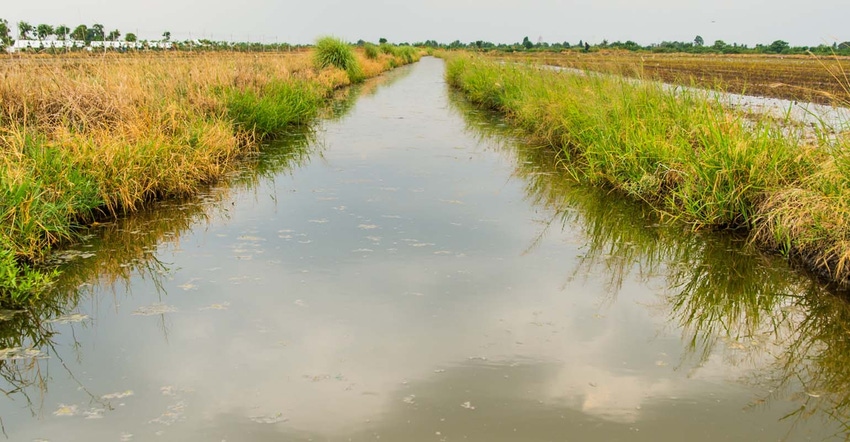
On Sept 12 a U.S. District Court judge in Galveston, TX issued an order which once again shows the power of the states in stopping overreaching EPA regulation.
Many, including myself, have written volumes about the term “Water of the United States” (WOTUS), an effort by the Obama administration to centralize and control U.S. waters through the Environmental Protection Agency (EPA).
The Texas court again enjoined or stopped WOTUS being applied in Louisiana, Mississippi and Texas. The court concluded there is a substantial likelihood the states will prevail against EPA’s rule, because the merits of the arguments fall on agriculture’s side.
The court determined EPA’s rule would pose a substantial threat to the states, and they would likely suffer irreparable injury if an injunction was not issued against EPA to stop it from violating individual’s rights.
The court also ruled that WOTUS would cause a threatened injury which outweighed EPA’s claim of threatened harm.
Finally, the court believed that granting the Texas request for a preliminary injunction is in the public’s interest.
Much has been written about EPA’s attempt to regulate virtually every intermittent stream or depression in land such as vernal pools or prairie potholes. The court slams EPA by saying “At this early stage in the proceedings, the strength of the States’ should not be overstated.”
The court order noted that facts were available to support the granting of a preliminary injunction stopping EPA. The court stated, “...it is the fourth factor pertaining to the public’s interest in this matter that tipped the balance in favor of granting an injunction - and did so to an overwhelming degree.”
A powerful statement
One needs to think about this powerful statement from the Texas judge. He is clearly stating that what the Obama EPA administration proposed was terrible and overreaching and was simply a clear violation of the law.
Remember, this battle against EPA and its definition of WOTUS began June 29, 2015. The WOTUS rule has now been stopped in its tracks in 26 states. This court and others clearly are pointing out to EPA its proposal is simply outside common sense and clearly outside the law of the Clean Water Act (CWA).
The court order states, “Were the Court not to temporarily enjoin the [WOTUS] Rule now, it risks asking the states, their governmental subdivision, and their citizens to expend valuable resources and time operationalizing a rule that may not survive judicial review.”
This case is not a total victory for those opposing the Obama administration rule. It is recognized there needs to be a permanent decision regarding the Rule’s constitutionality. So future decisions both by the Trump administration EPA and the courts will determine EPA’s jurisdiction over waters which appear on our land and particularly farm land and forests.
The court also provided a thoughtful set of comments about why it is inappropriate for it to issue a nationwide preliminary injunction as compared to recent U. S. district courts issuing nationwide injunctions against President Trump.
It is refreshing to review a district judge’s opinion which actually applies the law as it is to be interpreted. The battle with EPA is not over by a long shot, but U.S. district court judges, for a change, appear to be following the law and that is very helpful to all involved in agriculture. Not all water falling on the ground falls under EPA’s jurisdiction.
The opinions of the author are not necessarily those of Farm Futures or Farm Progress.
About the Author(s)
You May Also Like




